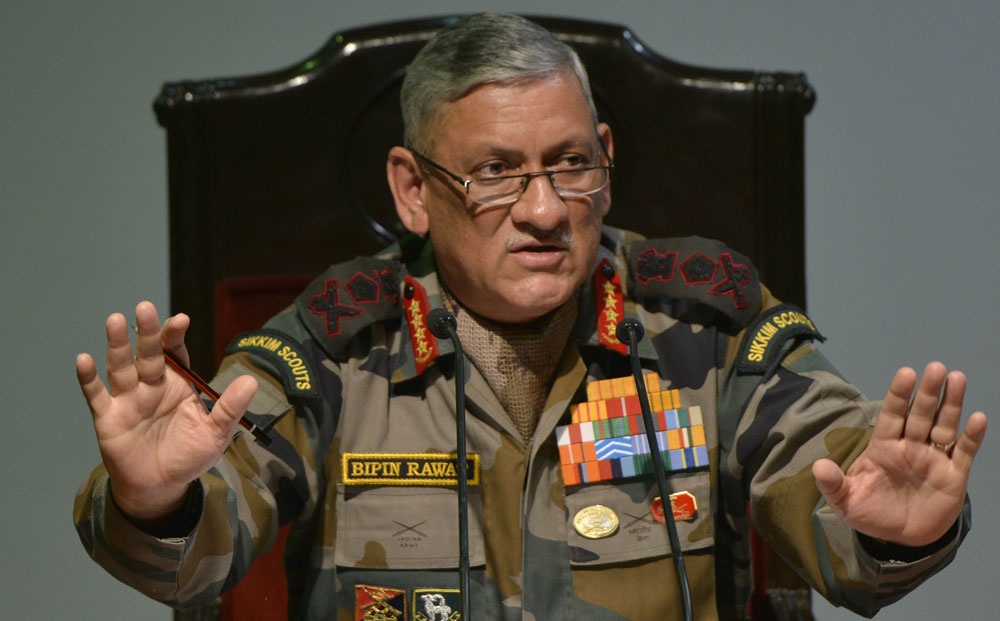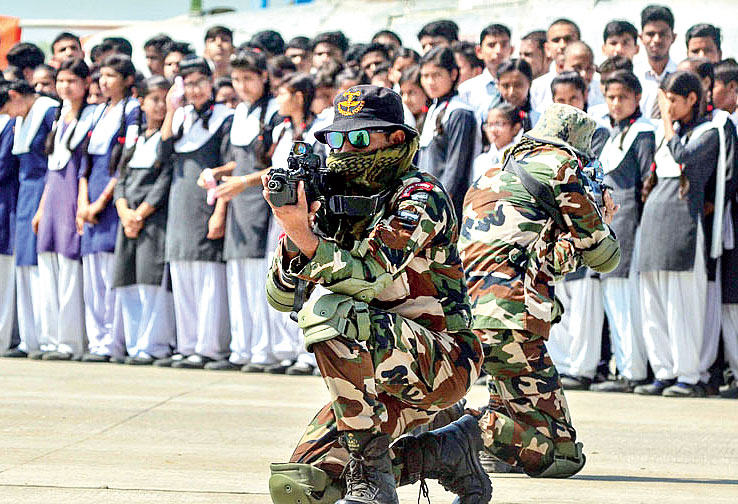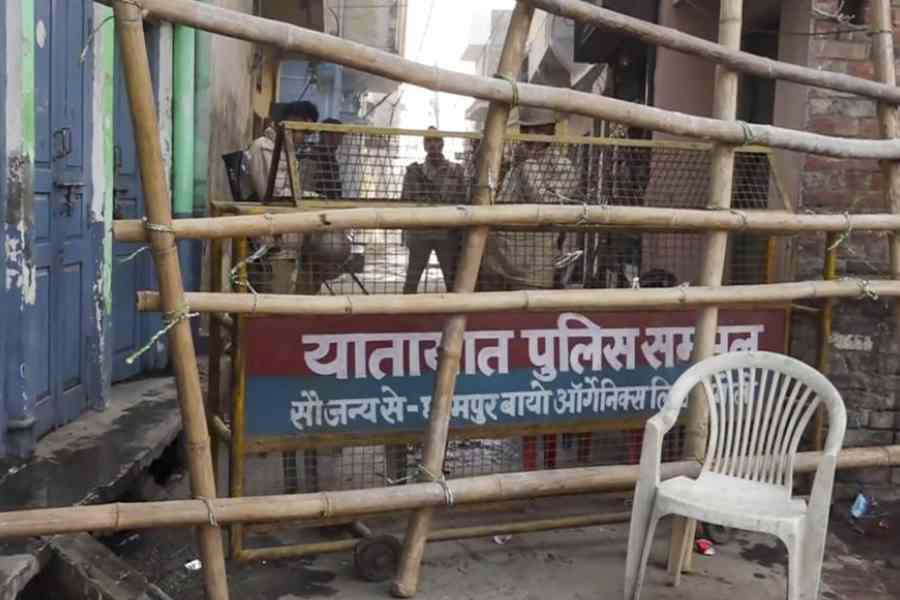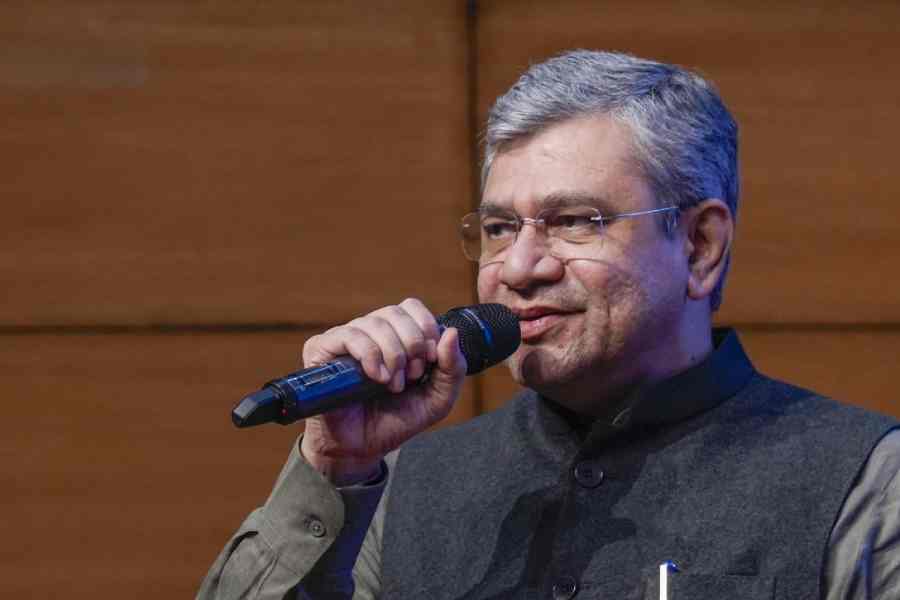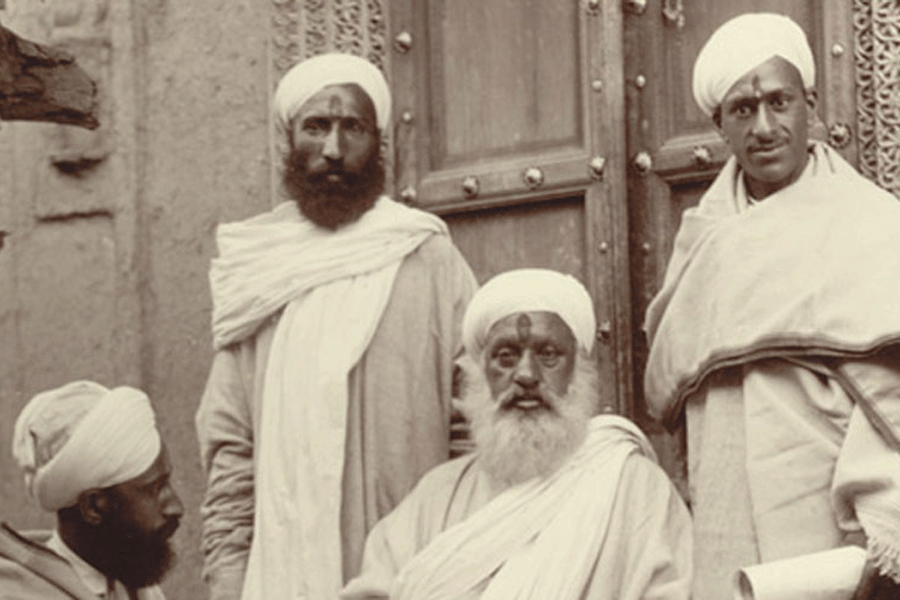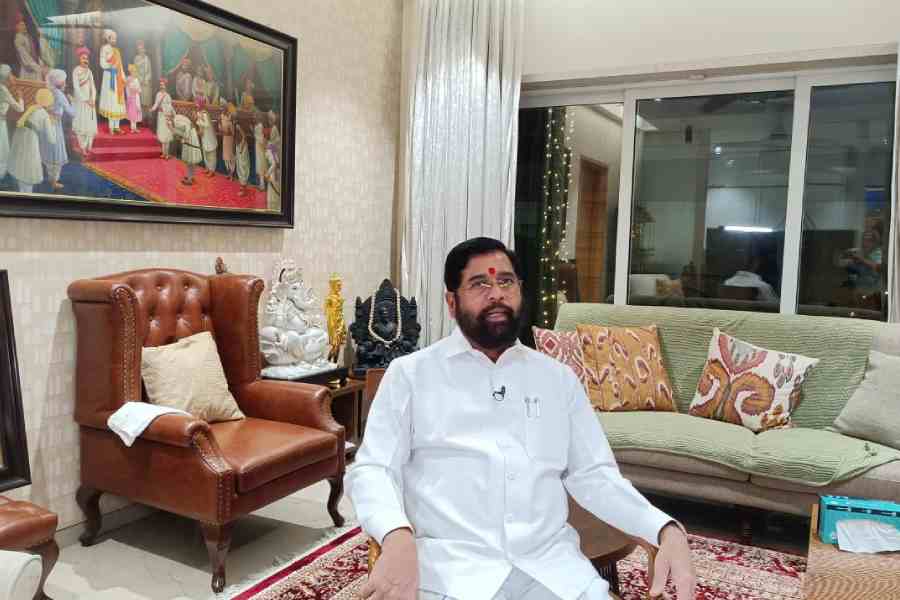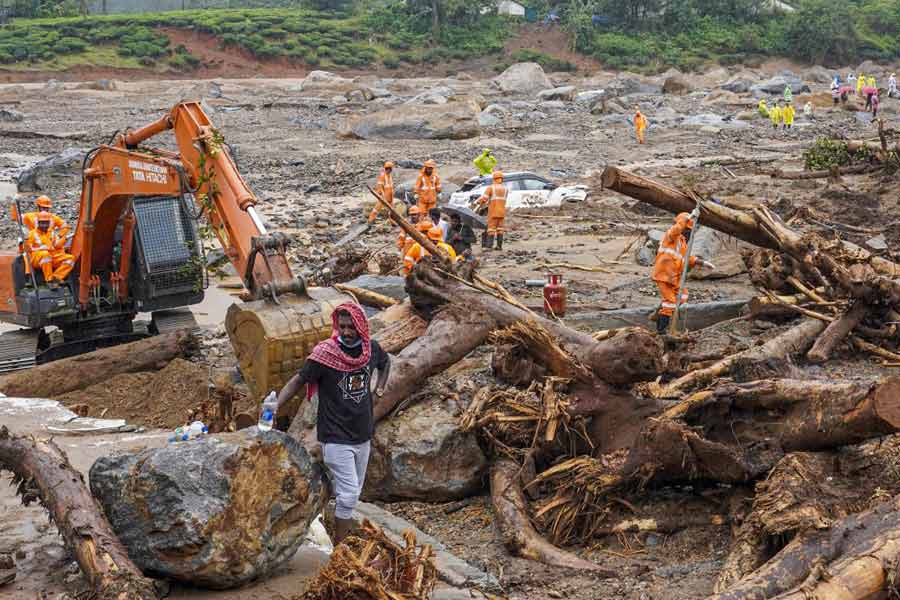Army chief Gen. Bipin Rawat is not known for missing a chance to shoot from the lip.
The general made an exception on Saturday when he told the ANI news agency: “He was one of the main persons involved in the conduct of these operations, so I respect his words very much.”
Gen. Rawat was referring to Lt Gen. D.S. Hooda, who was Northern Army commander in September 2016 when the “surgical strikes” were launched.
On Friday, Hooda, now retired, had tossed the equivalent of a live grenade into the political chest-thumping and nit-picking that had followed the military operation.
The “over-hype” did not help, the political banter on both sides was not good and military operations should not be politicised, Hooda told a military literature festival in Chandigarh.
“Did the over-hype help? I say, completely no. If you start having political resonance in military operations, it is not good. There was too much political banter, on both sides, and when military operations get politicised, that is not good,” Hooda had said while moderating a discussion.
In hindsight, it would have been better to have conducted the operation secretly, Hooda added, while pointing out that questions from the media and the soldiers themselves about the Indian response to the attacks on army installations since 2013-end had left the militaryleadership with little option but to publicise the surgical strikes.
Such sagacious counsel from anyone else would have triggered a declaration of hostilities by sections of the government, the ruling party and armchair nationalists, especially since Prime Minister Narendra Modi has been tom-tomming the surgical strikes on the campaign trail and tours abroad.
On Saturday, the BJP chose silence on Hooda’s remarks and none in the government engaged in the debate.
Even Gen. Rawat replaced his trademark vocal approach with a measured tone when reporters asked him about Hooda’s observations. “These are an individual person’s perceptions, so let’s not comment on them,” Rawat told the news agency, describing Hooda “as one of the main persons involved in the conduct of these operations” and adding that he respects the retired officer’s words.
The Opposition did not pull any punches.
Quoting a newspaper report on Hooda’s remarks, Congress president Rahul Gandhi tweeted: “Spoken like a true soldier General. India is so proud of you. Mr 36 has absolutely no shame in using our military as a personal asset. He used the surgical strikes for political capital and the Rafale deal to increase Anil Ambani’s real capital by 30,000 Cr.”
Prime Minister Modi used to declare that only a leader with a 56-inch chest could solve India’s problem. Rahul’s reference to “Mr 36” generated multiple hypotheses: it could be an allusion that the chest has shrunk now in the wake of adversity or to the 36 Rafale fighters being bought.
Over the past two years since the surgical strikes, there have been periodic slugfests between the Congress and the BJP over the issue as the ruling party tried to project it as a first while the Opposition party maintained that such operations have taken place in the past, too, but not talked about or milked for publicity.
Referring to Hooda’s remarks, CPM general secretary Sitaram Yechury tweeted: “In every election campaign, Modi has politically misused this military operation, endangering India's strategic interests and future military responses. It’s a dangerous gambit.”
While Rahul and Yechury commented on Hooda’s remarks, other Opposition leaders such as former Jammu and Kashmir chief minister Omar Abdullah and the RJD’s Manoj Jha shared the media reports on the meeting on social media, giving it more traction and keeping it in discussion all day.
Both in India and abroad, Modi has cited the surgical strikes as an example of a “new India”. Interacting with Indians in London in April at a town hall meeting, the Prime Minister had said: “When someone stabs us in the back… this is Modi, he knows how to respond in the same language.…”
When Rahul coined the phrase “jumla (rhetoric) strike” to describe the Modi government's broken promises and decisions such as demonetisation that hurt the economy, the Prime Minister had accused him of insulting soldiers.
“You called the surgical strike a jumla strike. You can abuse me as much as you want but stop insulting the jawans of India. I will not tolerate this insult to our forces,” Modi said in the Lok Sabha on July 20 while responding to a debate on a no-confidence motion.
There was no big celebration of the surgical strikes on its first anniversary last year. But this year, with the general election knocking at the door, the government decided to go big with a “Parakram Parv”.

